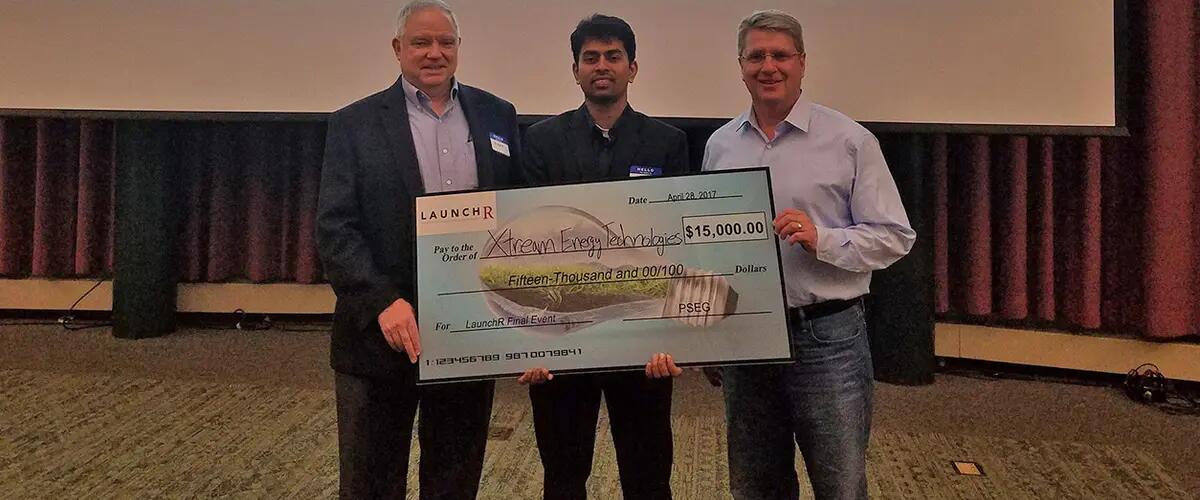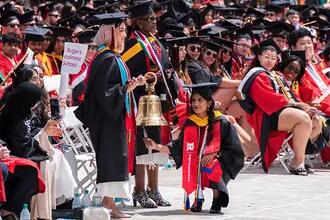
Doctoral student Jubilee Prasad Rao with professor Roger Debo and mentor Don Grust.
Idea for generating power from wave becomes a promising startup at Rutgers
Rutgers doctoral student Jubilee Prasad Rao became fascinated with the idea of creating an alternative power source. It started with wind. And then his focus turned to harnessing energy from waves.
When he started studying mechanical and aerospace engineering at Rutgers – in part to pursue his idea – he went to Professor Francisco Diez with some rough drawings of the concept he envisioned. With the professor’s help, Rao built a prototype and carried out a pilot.
"When we ran the tests, we were excited," Rao said.
After hearing about The Collaborative for Technology, Entrepreneurship and Commercialization or CTEC, a course offered by Rutgers Business School in partnership with the Mechanical and Aerospace Engineering Department at Rutgers, Rao said he thought it would be another chance to work on and advance his idea.
The CTEC course partners engineering researchers with MBA students to help bring research to the marketplace and build businesses around promising technologies. The course provided Rao with the skills to pitch his business idea at Launch R, a clean energy competition sponsored by the Department of Energy and hosted by Rutgers.
"I’m an engineer, but I like to learn new things and I thought this would make me well rounded," he said. Besides, he added, "to get things done in the real world, you need management skills as well as technical skills."
Roger Debo, an associate professor and director of CTEC, said the course is designed to provide a safe environment, experienced entrepreneurs acting as mentors, and a proven process to guide researchers and MBA students on a path to founding the next generation of technology-based startups.
"Jubilee and his project are a great example of this: a passionate inventor learning how to translate his key technical insight into a commercially viable product that will have a tremendous positive impact on the world," Debo said.
As the semester came to an end, Rao won second prize at the April 28 Launch R competition. The second-place finish came with $15,000 in prize money and also gives him the opportunity to compete for $100,000 prize in the national competition in Austin in late June.
Winning the competition provides money necessary to continue building the company, connections and an affirmation that he might be chasing a viable new energy source, but Rao knows there may be three to five years of research still to do before his idea for generating tidal power could be put into use.
"A lot of research goes into technologies like this," he said.
The potential is great though. Tidal energy is more predictable than solar and wind power. The issue, Rao said, is that no one has come up with a technology capable of producing energy that is inexpensive enough to be attractive to users.
He’s hoping to change that with some features he is designing to make his turbine more effective and efficient.
He said that’s part of what he learned in the CTEC course – how to do consumer research to determine if there is a market for his technology.
"If it doesn’t add value to the market, it’s worthless," he said. "Part of the challenge is knowing what the market wants and the problem that can be solved with your product."
Now his idea is a start-up business with its own name: XTREAM Energy Technologies.
"I have a love of the environment and I wanted to work on renewable energy," he said. "This was one way to do it."
-Susan Todd
Press: For all media inquiries see our Media Kit


